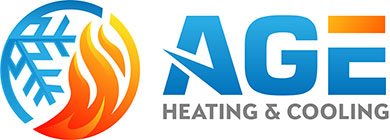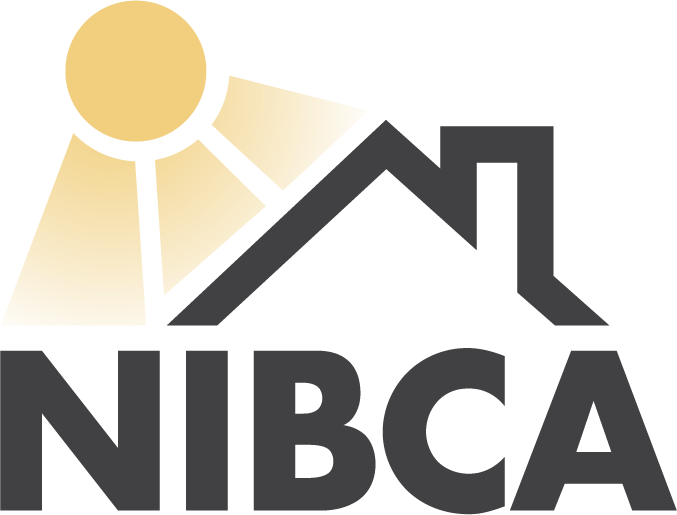
If you are interested in starting a new, successful career, look no further than heating, ventilation and air conditioning. HVAC is an excellent place to start, according to the U.S. Bureau of Labor Statistics, which predicts additional industry growth of 13 percent by 2028.
It's easy to see why these careers are continuing to grow. One is homeowners taking advantage of government incentives to upgrade to more energy-efficient comfort systems. It's also important to consider R-22 Freon® coolant, which affects old models. Finally, there’s the ever-changing real estate market exacerbated by a property shortage that’s increased the availability of new construction homes.
A career that's increasingly in demand is an HVAC technician. Learn the ins and outs of the HVAC technician's daily schedule, how to become one and about how much you can expect to make.
What Does It Mean to Be an HVAC Technician?
A HVAC technician possesses the knowledge and skills to service heating and cooling systems. Most technicians will earn experience on equipment in both homes and commercial properties. And, most importantly, you’ll receive a comprehensive education about:
- Air conditioners
- Furnaces
- Mini-splits and heat pumps
- Thermostats and home zoning
- Indoor air quality products such as air filters and air purification systems
Some are HVAC-R technicians, and they are further trained to provide refrigeration.
Is There a Shortage of HVAC Technicians?
Experienced HVAC technicians are increasingly sought after because of an industry shortage of labor. This discrepancy is the result of several factors, including an aging workforce and competition from other industries. There are also more young people seeking college degrees as opposed to a licensed trade like HVAC.
Is HVAC a Hard Career?
While HVAC often has you on your feet, it can also be very rewarding. As a technician you’ll need to be able to:
- Work in awkward settings, such as tight or dirty spaces.
- Work in high or low temperatures since HVAC systems are usually outdoors.
- Work evenings, weekends and overtime around peak demand.
A stubborn falsehood about HVAC is that it’s a blue-collar career. In reality, you need an extensive skill set, specialized education and continuous recertification.
It’s a great career choice if you want to:
- Avoid large amounts of student debt.
- Stay active rather than remain inside an office.
- Have job security since HVAC positions can't be outsourced.
- Gain the experience you need to start your own successful business.
Is HVAC a Demanding Job?
Every job has sources of stress. HVAC technicians work on complex equipment and must sometimes deal with cramped or uncomfortable working conditions. The proper experience and tools can help address any concerns. Additionally, paid training and a consistent schedule help HVAC professionals fend off some of the most common triggers of work-related stress.
Is HVAC Hard on Your Body?
Lifting heavy items and performing repetitive motions are a couple of ways the HVAC industry can be physically demanding. Getting to specialized types of equipment can be strenuous. HVAC technicians should be physically fit, and you may benefit from a healthy diet and exercise regimen to stay in good shape.
Are HVAC Careers at Risk Because of a Recession?
While no job is guaranteed to survive a recession, HVAC is consistently avoiding the worst of economic downturns due to the essential nature of heating and cooling equipment. Repairs and installation are always necessary, which means professionals in HVAC can often find work across the country.
Is HVAC a Good Career for the Future?
As HVAC equipment becomes more complex, professional servicing will become even more important. The newest models of heating and cooling systems use less energy or produce it from renewable sources like solar and wind. Environmentally sustainable HVAC equipment will keep growing more popular, as will the need for experienced installers and technicians.
How to Become an HVAC Technician
To become an HVAC technician, you’ll need a high school diploma or GED in addition to specialized training. Other, more specialty (and higher paying) HVAC careers require additional education or certifications.
Earn certifications by signing up for classes at a community college or trade school. How much time is needed to become an HVAC technician varies from program to program, which is most often around six months to two years. An HVAC company will sometimes also require NATE certification. This refers to North American Technician Excellence, this industry-leading accreditation builds on your existing industry knowledge to help you better serve customers.
While some elements of an HVAC career could be learned on your own, professional development means combining classroom programs with on-site training. At the same time, HVAC careers don't involve complex math. While you'll need to know some basic math, most of the HVAC professionals’ skill set relies on critical thinking, for identifying problems and ensure quality installation.
Career Explorer reports that technicians familiar with tablets, electronics and troubleshooting will be especially useful as equipment becomes more technologically advanced.
Another key perk of working in HVAC is almost zero student debt.
According to Midwest Technical Institute, attending a technical or trade school usually costs about $15,000. A community college is usually around $5,000 every year. In comparison, the average student debt for a bachelor’s degree is $25,921.
A Daily Schedule as an HVAC Technician
A typical workday may vary depending on where you work. If you work in repairs, you may work early, late or be on call throughout the day. For projects more relevant to new construction, you are more likely to have a set schedule during normal business hours.
As a technician, you'll visit many different homes and businesses to perform repair, maintenance or installation work. Certain jobs may need more time and resources than others, so the number of calls each day can fluctuate.
As we mentioned before, every now and then the job will have to be done in inclement weather as well as in difficult-to-reach places. For jobs that work with customers or clients, strong customer service skills are always a positive.
Can You Make a Good Living in HVAC? Average Salary for HVAC Technicians and Other HVAC Careers
With the constant growth in HVAC careers, your salary should reflect that. The national average salary for an HVAC technician is $49,242, according to ZipRecruiter. Top earners make between $56,600 and $68,000. Having said that, total compensation can depend on where you live and its cost of living. HVAC techs with enough experience to work in management in a high-paying state may make as much as six figures.
Along with starting your own business, there are several other ways to advance your career. These include:
- HVAC manager, $72,515 average salary
- HVAC service manager, $71,176 average salary
Types of HVAC with the Highest Salaries
You can specialize for new opportunities within the HVAC industry, and continuing education and certification opportunities help unlock paths to specialist careers with even higher salaries. For example, master engineers who can manage projects and design custom HVAC systems could be eligible for salaries as high as six figures. Larger salaries are also more common when working with advanced equipment like commercial HVAC systems, geothermal heat pumps or radiant in-floor heating.
What States Need HVAC Workers the Most
HVAC technicians are needed in cities throughout the country, but even more so in Florida, California, Texas, New York and Illinois. According to hvacclasses.org, these states employ the most HVAC workers and are experiencing major construction growth. Here’s why:
- Florida: Hurricanes, education and healthcare facilities.
- California: Wildfires, transportation, energy and utility projects.
- Texas: Hurricanes, energy, utility and other infrastructure upgrades.
- New York: Residential and infrastructure updates.
- Illinois: Companies relocating to the Chicago area.
Where HVAC Technicians Will Be in High Demand in the Future
Projections Central, who develops long-term occupational projections, expects these states to have the greatest demand for technicians by 2028:
- Utah, 31.1%
- Colorado, 29.7%
- Nevada, 27.9%
- Arizona, 21.4%
- Iowa, Oregon and Montana, 18.5%
- Arkansas, 16.3%
- Florida, 16.2%
- South Carolina, 16%
- Texas, 15.9%
- Idaho, 15.7%
- Washington, 15.6%
- North Carolina, 15.5%
- Tennessee, 15.2%
- Wyoming, 14.3%
- Nebraska, 13.9%
- Indiana, 13.8%
- North Dakota, 13.8%
Here’s where the highest number of new positions during that time frame are expected to be:
- Florida, 5,420
- Texas, 5,530
- California, 4,100
- North Carolina, 2,510
- New York, 2,290
- Colorado, 2,000
- Ohio, 1,550
- Pennsylvania, 1,510
- Virginia, 1,500
- Tennessee, 1,360
- Washington, 1,290
- Georgia, 1,270
- New Jersey, 1,170
- Utah, 1,170
- South Carolina, 1,1060
- Indiana, 940
- Maryland, 820
- Missouri and Arizona, 810
- Michigan, 780
Weather and a healthy economy should spur continued growth in these states, according to hvacclasses.org.
Grow Your HVAC Career with Age Heating & Cooling
HVAC technicians can find work just about anywhere, including in Sandpoint. To learn more about our openings, visit our careers page or call us at 208-603-2210 today!







